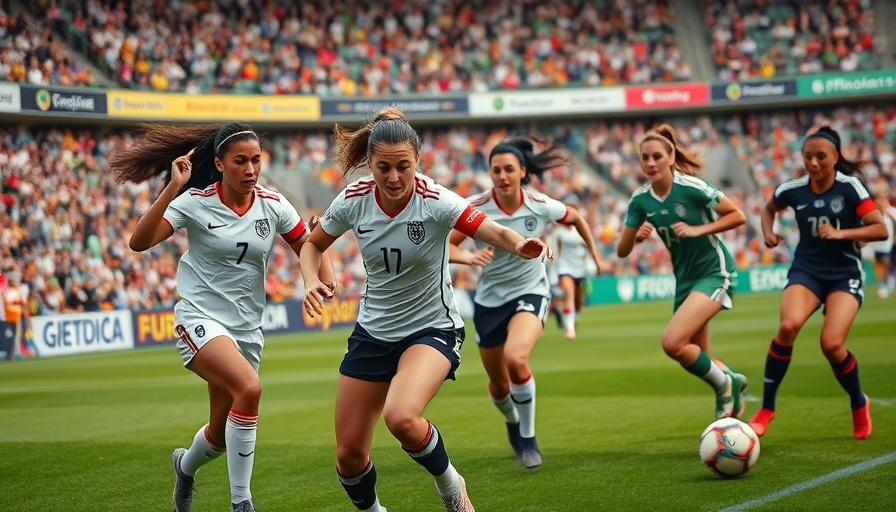
A Tough Loss for Banyana: Understanding the Game
Banyana Banyana’s journey in the Women’s Africa Cup of Nations (WAFCON) came to a heartbreaking end as they faced a 2-1 defeat against Nigeria in the semi-finals. This match, held at the Larbi Zaouli Stadium in Casablanca, Morocco, not only symbolizes the competitive spirit of African women's football but also highlights the growing stakes within the sport.
The Crucial Moments That Defined the Match
The turning point of the match occurred right before halftime. In the 44th minute, a handball was called against the South African team, leading to a penalty that Nigeria's Rasheedat Ajibade confidently converted. Despite the valiant efforts of goalkeeper Andile Dlamini, who anticipated the shot well, she was unable to thwart Ajibade's strike, putting Nigeria ahead at a critical juncture.
However, it was not a straightforward path to victory for Nigeria. Banyana Banyana equalized through a thrilling goal late in the second half, showcasing their tenacity and determination. Yet, Nigeria ultimately secured their win with a second goal that pushed the score to 2-1, leaving Banyana Banyana devastated and out of the tournament.
The Broader Impact on Women’s Football
This recent performance by Banyana raises questions about the future of women's football in South Africa and Africa at large. Their achievements have inspired many young athletes around the continent. Highlighting the challenges they faced, the match resonated deeply within the sporting communities, underlining the need for continued support and recognition of women's sports.
Comparative Analysis: Banyana Banyana vs. Global Standards
When we look at global counterparts, historic teams such as the United States and Germany have had well-established programs that nurture talent from an early age. They benefit from greater resources and infrastructure, a stark contrast to the developing scene in South Africa. Banyana's progress at WAFCON, however, serves as a reminder that with the right investment, they can compete on the world stage.
What This Means for Future Tournaments
The defeat raises pressing questions about the preparations required for future competitions, including the next World Cup and the upcoming AFCON. Improving youth programs and fostering local talent through leagues like the Premier Soccer League (PSL) and establishing mentorship opportunities with seasoned players will be crucial. Moreover, the visibility and investment in women’s sports must increase to build a solid framework for success.
Call to Action for Supporters and Stakeholders
The heartbreak of this match can serve as a galvanizing moment for the South African public and sports officials alike. It highlights the importance of grassroots efforts in growing women’s sports and ensuring that future champions emerge from this current generation. Supporters are urged to rally around teams like Banyana Banyana and invest in local sporting initiatives, ensuring that women athletes receive the recognition and resources they deserve.
The Future of Women's Football in South Africa
Despite the setback at WAFCON, it’s important to view this defeat within a larger context. Trends show a growing interest in women’s football, both from a commercial and competitive standpoint. This moment could inspire changes that lead to greater inclusivity and investment in women’s sports initiatives across the board. It’s not just about reclaiming a title but building a legacy.
As we reflect on Banyana Banyana’s performance, let’s commit to creating a supportive environment for female athletes. Their dedication deserves recognition—not just in victory but in every step of their journey.
 Add Row
Add Row  Add
Add 




Write A Comment